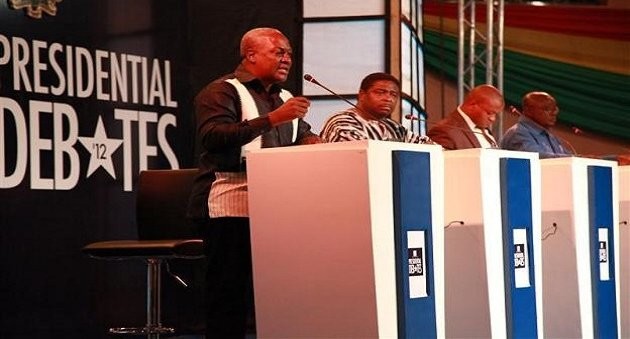Ahead of the upcoming 2024 general elections, the Institute of Economic Affairs (IEA) is set to host its flagship presidential and vice-presidential debates. These highly anticipated events promise to be a crucial battleground for candidates vying for the nation’s top offices.
The debates, designed to foster issue-based elections, will cover a wide range of critical topics including the economy, governance, natural resources and social issues. They offer a unique platform for candidates to present their plans and critique their opponents’ policies, providing voters with invaluable insights into each contender’s approach to solving Ghana’s pressing challenges.
“The debates will provide a common platform for the presidential and vice-presidential candidates to discuss various aspects of the nation’s development process. It will be a form of policy dialogue engagement during which candidates will have an opportunity to present their viewpoints and plans, and also point out weaknesses in the policies of their co-contestants and present alternatives to those policies and programmes,” the IEA said in a statement.
“The electorate, on the other hand, will receive first-hand information on the programmes and plans of each candidate. Our moderators will pose questions to the candidates based on submissions received from the public on various thematic areas – including the economy, governance, natural resources, agriculture, education, health, labour, gender, children, youth and other social issues,” it added. The schedule for the debates, however, has not yet been set.
Vice President and New Patriotic Party (NPP) flagbearer Dr. Mahamud Bawumia has already thrown down the gauntlet, challenging former President John Mahama, the National Democratic Party (NDC) candidate, to a public discourse on their visions for Ghana’s future. It is unclear if other front-runners, including Alan Kyerematen of the Movement for Change and Nana Kwame Bediako of the New Force, will join the fray.
The timing of these debates is particularly significant, coming on the heels of widely-watched U.S. presidential debates between Joe Biden and Donald Trump. This has heightened interest in Ghana’s own political showdown.
History
Presidential debates in the country began in 2000 when the IEA organised the country’s first-ever such event. This inaugural debate set a precedent, with absence of the ruling party’s candidate reportedly contributing to their electoral defeat.
The 2004 debate faced a setback when the incumbent, J.A. Kufuor, withdrew at the last minute despite earlier commitments. However, this did not deter the IEA from expanding the format in 2008. That year saw the introduction of ‘Evening Encounters’ – individual platforms for candidates – and the first-ever Vice Presidential Debate, acknowledging the second-in-command role’s importance.
A significant milestone was reached in 2012 when, for the first time, a sitting president participated in the debates alongside other candidates. This breakthrough helped establish the debates as an integral part of Ghana’s electoral process, breaking the cycle of incumbent avoidance. There were no debates in 2016 and 2020.
Over the years, these debates have evolved from simple question-and-answer sessions to comprehensive policy dialogues, sometimes held in multiple locations across the country.










